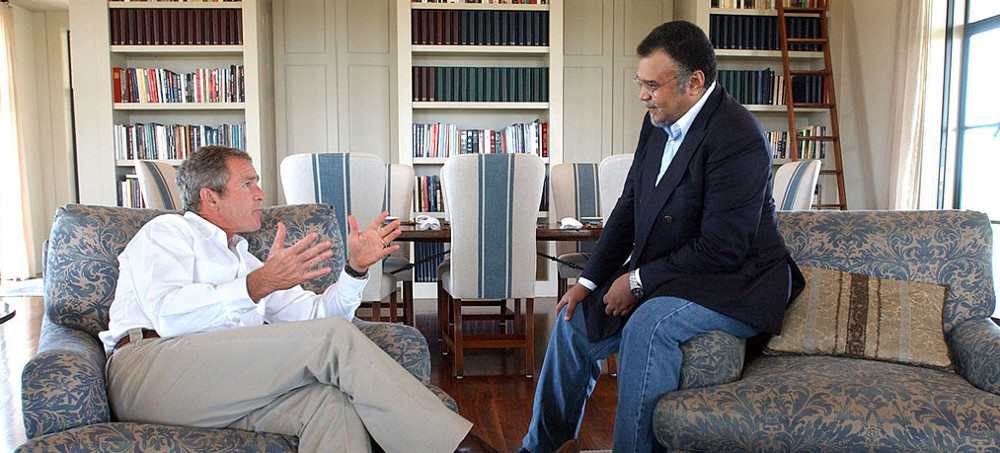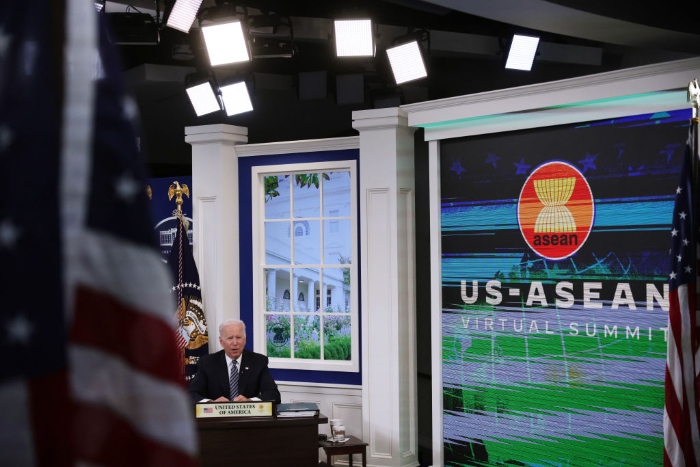Live on the homepage now!
Reader Supported News
Negotiations remain in play even as the most hideous propaganda fuels the conflict in Ukraine and Russia. Meanwhile, the United States and NATO are reinforcing Ukraine’s resistance. US assistance alone will mount to over $1 trillion. Sanctions are also disrupting Russia’s economy. Its privileged trade status has been withdrawn, oligarchs’ assets have been seized, investments have been frozen, and Vladimir Putin has become a pariah. But there is no reason to be sanguine. The sanctions are already producing a backlash. Weaponized economic policies have led significant numbers of citizens, and even some among the protestors, to conclude that the United States and NATO are pursuing imperialist aims predicated on destroying Russia—and that their president, Vladimir Putin, is right or, at least, doing what he must. The ruble has lost half its value and it is soldiers, small businesses owners, government employees, and workers with set wages who are watching their savings melt away.
Western leaders assume that wrecking the economy will drive the Russian population to overthrow its tyrant. But it can also intensify nationalism, xenophobia, and new imperialist ambitions. Russia has options. In light of its conflicts with the United States, China might rush to the rescue with military aid and new trade agreements whereas Iran is already preparing oil deals for Putin. Should Western competition with China intensify, and US-Iranian nuclear-treaty negotiations collapse, some new authoritarian version of the former “Axis” alliance of fascist powers will probably appear on the horizon. That Putin has become a pariah is only partially true. As for the oligarchs, indeed, Stalin was never overly concerned about the economic well-being of his subordinates—and neither is Putin.
Will economic pressure trump political will? That is doubtful. It is also questionable whether sanctions will shorten the war. New thinking is necessary especially when serious revolutionary opposition to Putin is lacking. Demonstrations have taken place all over Russia, but the only sizable protests were in Moscow and St. Petersburg. Quiet rules in the rest of this huge nation. Putin’s policy is driven by a desire to recover Russia’s traditional sphere of influence. Its aims are what they always were, namely, securing warm-water ports and ensuring a buffer against invasion. These reach back not just to Stalin and Lenin, but to Peter the Great.
Strategic proposals are mostly inadequate and disingenuous. Western media commentators gravely warn that, “we” cannot let Putin win and praise leader for standing up to Putin. But then they pointedly ask: have they stood up enough? What else might they try? Impose more economic sanctions? Send more jets, missiles, and drones? Perhaps implement a “no-fly zone” over Ukraine. Western leaders have mostly been prudent about that option. A no-fly zone would inevitably result in air battles between Russian and Western planes, probably a broader war, and perhaps even nuclear apocalypse. Our armchair strategists, however, have more on their mind. They facilely warn of “appeasement” and a repeat of the “Munich Crisis” of 1938. Appeasement bought the allies some time to rearm and, whatever the miscalculations, the only other option back then was for the allies to declare war. Hitler was ready — is that also the case with our brave hawks?
All of them dance around the question of sending troops to Ukraine – and for good reason. Without even considering the likelihood of a trans-European conflagration, and possibly worse, the Western public would never stand for it – and certainly not over the long run. For all the tough talk, in fact, citizens may not even stand for the outrageous hikes in gas prices brought about by sanctions on Russian oil sales. Boosters might as well be chanting: “Let’s you and him fight!”
Ukraine’s labor’s lost is difficult to admit. The country has already paid an enormous price, which will rise if NATO troops are sent into Ukraine, if a no-fly zone is implemented, if the fighting spills over into other countries, and — above all — if provocations bring about chemical warfare or even nuclear conflict. Everyone hopes that such predictions are mistaken. But then, politics rests on hoping for the best while seeking to prevent the worst. All wars come to an end, and that will be true of this war as well. Three likely outcomes exist. Russia might conquer Ukraine, set up a puppet regime, and perhaps target the Baltic states next. Alternately, Ukraine might repel the invader, rebuild its infrastructure and heighten security, but still remain overshadowed by Russia. Or, finally, should the war spill over into Europe, even more destructive weapons will come into play, and the continent will stand in danger of annihilation.
Progressives must prepare for new conditions, which means thinking outside the box. In collaboration with the National Platform for Reconciliation and Unity in Ukraine, an umbrella coalition of progressive civic organizations, the International Council for Diplomacy and Dialogue put forward a “Statement” with ideas for thinking about the Ukrainian-Russian conflict in a new way: https://www.opednews.com/articles/Statement-from-the-NPRU--by-stephen-Bronner-Ukraine_Ukraine-Coup_Ukraine-Crisis_Ukraine-Phone-Call-Whistleblower-220306-537.html.
Under any circumstances negotiations without preconditions must continue. That is particularly the case should the conflict between Russia and Ukraine produce a gruesome stalemate. Some speculative suggestions for other scenarios, however, Ukraine, however, are worth making in which civil society plays a role:
1: If Russia is poised for victory
- Create a provisional government-in-exile to coordinate future resistance, and provide an alternative to any puppet regime.
- Assemble plans for reconstructing Ukraine even if stripped of its sovereignty.
- Prepare for Ukraine’s de-militarization and neutrality.
- Call for a summit between NATO leaders and Putin in a neutral site.
2: Should it appear that the war will spill over into Europe:
- Consider an airlift for humanitarian aid.
- Develop cooperative plans for settling millions of refugees
- Create humanitarian corridors targeting IDPs
- Steer public opinion against any preemptive use of chemical or nuclear weapons in this conflict.
3: If it appears that Ukraine will prevail:
- Negotiate with the EU and the United States for a new Marshall Plan
- Draw closer ties between the government and civil society
- Create a reconciliation commission and condemn calls for “popular justice”
- Temper the xenophobic propaganda leveled against Russia
Stephen Eric Bronner is Distinguished Professor Emeritus of Political Science at Rutgers University and Co-Director of the International Council for Diplomacy and Dialogue. His most recent work is The Sovereign (Routledge).
Reader Supported News is the Publication of Origin for this work. Permission to republish is freely granted with credit and a link back to Reader Supported News.
Special Coverage: Ukraine, A Historic Resistance
READ MORE
Follow us on facebook and twitter!
PO Box 2043 / Citrus Heights, CA 95611











